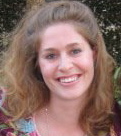When I entered the field of public relations at the ripe old age of 22, I felt like a latecomer. I had just moved to Washington, D.C., for an internship in PR at a theater (as I thought I wanted to work at a theater, but did not know in what capacity) and quickly realized how exciting and creative PR could be. With no formal PR-focused education, I decided to take an introduction to PR class in a strategic public relations graduate program at The George Washington University, which turned out to be a great career decision.
PR is a field that doesn’t require post-graduate degrees, and professionals in the field have a variety of undergraduate majors and minors. A lot of schools do have PR undergraduate degrees, such as the Newhouse School at Syracuse, as well as PRSSA chapters. Many people, though, come to PR with a strong background in writing, speaking or community outreach and may be looking for more formalized training, which was exactly what I needed. Benefits from obtaining a master’s degree include:
Learning from classmates
Much of the knowledge I gained from attaining my master’s degree in PR came from speaking with my fellow classmates. In my introduction to PR class, filled mostly with part-time students with full-time jobs, I met people working as press secretaries for senators, account executives at PR firms, graduate interns in formal government postings, sole PR practitioners at non-profits and in a host of other positions. The class also included some less experienced people such as myself, but class conversations were more often carried by people with experience, and it was interesting to hear their thoughts. Though my classmates’ collective experience intimidated me, I appreciated being able to learn from the stories and ideas they shared.
Connecting to internship and networking opportunities
Experience is key in PR. Internships can help a new professional determine what kind of place at which he or she would like to work. (Agency? Non-profit? Government?) They can help a new pro get his or her foot in the door. Networking is also a good way to gain knowledge about the PR field in a specific area and meet people who can connect you to a job. Combining networking and the experience of obtaining a graduate degree is sure way to achieve success, and, in fact, networking and getting experience can be much easier to do through enrolling in a graduate program. Many companies may require internship candidates to be enrolled in a graduate program, such as government Student Career Experience Programs (SCEP), and university career centers often help connect students to internships or full-time positions. Graduate programs or university career centers often host helpful networking events as well, free to students. Take advantage of these if you enroll in a program.
Getting an edge on your resume
Toward the end of my graduate program, I began to look for a full-time PR position through the career center at which I worked. I found a position that required applicants to have either a certain number of years of experience (which I didn’t have) OR less years of experience and a master’s degree. Since I would had the degree, I was qualified…and got the job! In other situations, when your resume may look nearly the same as another candidate’s, but you have a master’s and the other candidate does not, you’ll come out on top.
The decision to get a master’s is a big one to make. Aside from assessing whether it will help you improve your job prospects, you’ll have to consider the cost–what program to choose (PR, communications, perhaps even an MBA), which schools to apply to, whether to go full-time or part-time and if you’ll be able to handle the work load. Try applying for a job at the school you decide to go to. After I started working full-time at GWU, my tuition costs were almost completely covered by the school. Whatever you end up deciding to do, make sure it’s something that will add to your career, that you’ll be learning new information that you didn’t know before and that you’ll enjoy the program. If you apply and get in, make sure to go out and have fun with your classmates—they’ll be your future colleagues!
 Whitney E. Gray, communications coordinator for CropLife America, an international trade association of agrobusiness companies. Hailing from the snowy state of New Hampshire, Gray has been working in Washington, D.C., since 2008. She graduated with a Bachelor of Arts in theater arts and American studies from Brandeis University and has a master’s degree in strategic public relations from The George Washington University Graduate School of Political Management. Gray once served as the PRSA New Professionals Section membership co-chair.
Whitney E. Gray, communications coordinator for CropLife America, an international trade association of agrobusiness companies. Hailing from the snowy state of New Hampshire, Gray has been working in Washington, D.C., since 2008. She graduated with a Bachelor of Arts in theater arts and American studies from Brandeis University and has a master’s degree in strategic public relations from The George Washington University Graduate School of Political Management. Gray once served as the PRSA New Professionals Section membership co-chair.




